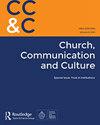The Bible, literature and communication: A theologian’s view
Q1 Arts and Humanities
引用次数: 0
Abstract
Abstract The importance of the Bible from the literary point of view is evident. It has had and continues to have a great influence on literary works, not only as a culturally significant religious text, but also as a literary work of merit in its own right. This article reflects on the extent to which this well-known feature of the Bible might be relevant to the work of a theologian who receives it as a sacred text. First of all, a review is made of the reception of the literary dimension of the Bible throughout history. For various reasons this dimension has tended to be historically underestimated but, at the same time, it was usually admitted that ignoring it was tantamount to compromising the very functionality of the biblical text. There follows a theoretical reflection on the role of literary language in two important areas for theology: the communication of spiritual experience and the representation of history. Finally, a possible classification of biblical contents is proposed according to their literary characteristics and the conditions they establish from the point of view of communication.《圣经》、文学与传播:一位神学家的观点
摘要从文学的角度来看,《圣经》的重要性是显而易见的。它已经并将继续对文学作品产生巨大影响,不仅作为一部具有文化意义的宗教文本,而且作为一部本身就有价值的文学作品。这篇文章反思了《圣经》的这一著名特征在多大程度上可能与神学家的工作有关,神学家将其视为神圣文本。首先,回顾了历史上对《圣经》文学维度的接受。由于各种原因,这一维度在历史上往往被低估,但与此同时,人们通常承认,忽视它就等于损害了圣经文本的功能。以下是对文学语言在神学两个重要领域的作用的理论反思:精神经验的交流和历史的再现。最后,从传播的角度,根据圣经内容的文学特点和所建立的条件,提出了对圣经内容的可能分类。
本文章由计算机程序翻译,如有差异,请以英文原文为准。
求助全文
约1分钟内获得全文
求助全文
来源期刊

Church, Communication and Culture
Arts and Humanities-Religious Studies
CiteScore
1.30
自引率
0.00%
发文量
14
审稿时长
21 weeks
 求助内容:
求助内容: 应助结果提醒方式:
应助结果提醒方式:


